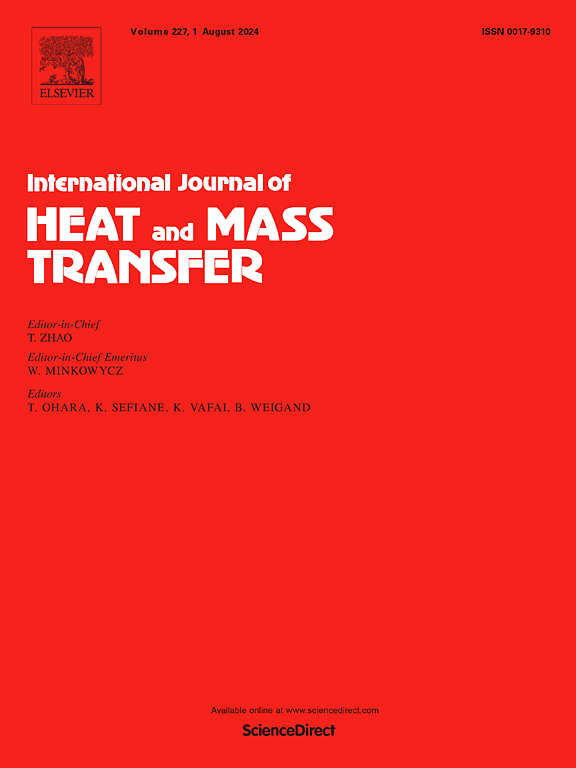通过反演法精确调整数值模型,有效模拟高压压铸过程
IF 5
2区 工程技术
Q1 ENGINEERING, MECHANICAL
International Journal of Heat and Mass Transfer
Pub Date : 2024-09-25
DOI:10.1016/j.ijheatmasstransfer.2024.126188
引用次数: 0
摘要
高压压铸(HPDC)工艺可以在很短的周期内制造出形状复杂的零件。在这项工作中,使用了有限元(FE)商业代码 ProCAST 来模拟高压压铸(HPDC)从充填到凝固的所有步骤,包括润滑和吹气。案例研究选择了铝窗托架的制造;相应的数值模型使用模具温度数据(由红外摄像机获取)进行校准:未知传热系数(HTCs)使用逆方法确定。特别是,根据 CCD 方案安排了一个数值模拟计划,并使用误差函数(计算结果与测量温度数据之间的差值)来训练精确的元模型,这些元模型依赖于内插算法和近似算法。最后,在训练好的元模型基础上,通过多目标遗传算法进行虚拟优化,确定了属于帕累托前沿的最佳设计。本文章由计算机程序翻译,如有差异,请以英文原文为准。
Accurate tuning by inverse methodology of the numerical model for efficiently simulating the high pressure die casting process
The High Pressure Die Casting (HPDC) process allows to manufacture complex-shaped parts in a very short cycle time. Due to the high rapidity of the process cycle, tool temperatures sensibly fluctuate within each cycle, therefore the prediction of the thermal boundary conditions regulating the heat exchange is of utmost importance.
In this work, the Finite Element (FE) commercial code ProCAST is used to simulate all the steps of the HPDC, from filling to solidification, including lubrication and blowing. The manufacturing of Aluminium window brackets was chosen as the case study; the corresponding numerical model was calibrated using dies’ temperature data (acquired by an infrared camera): the unknown heat transfer coefficients (HTCs) were determined using an inverse approach. In particular, a plan of numerical simulations was arranged according to a CCD scheme and error functions (calculated as difference between calculated and measured temperature data) were used to train accurate metamodels relying on both interpolating and approximating algorithms. A virtual optimization, managed by a multi-objective genetic algorithm, was finally carried out based on the trained metamodels and optimal designs, belonging to the Pareto front, were determined.
Simulations using the results from the optimization round allowed to confirm the effectiveness of the results and, in turn, the effectiveness of the proposed approach.
求助全文
通过发布文献求助,成功后即可免费获取论文全文。
去求助
来源期刊
CiteScore
10.30
自引率
13.50%
发文量
1319
审稿时长
41 days
期刊介绍:
International Journal of Heat and Mass Transfer is the vehicle for the exchange of basic ideas in heat and mass transfer between research workers and engineers throughout the world. It focuses on both analytical and experimental research, with an emphasis on contributions which increase the basic understanding of transfer processes and their application to engineering problems.
Topics include:
-New methods of measuring and/or correlating transport-property data
-Energy engineering
-Environmental applications of heat and/or mass transfer

 求助内容:
求助内容: 应助结果提醒方式:
应助结果提醒方式:


